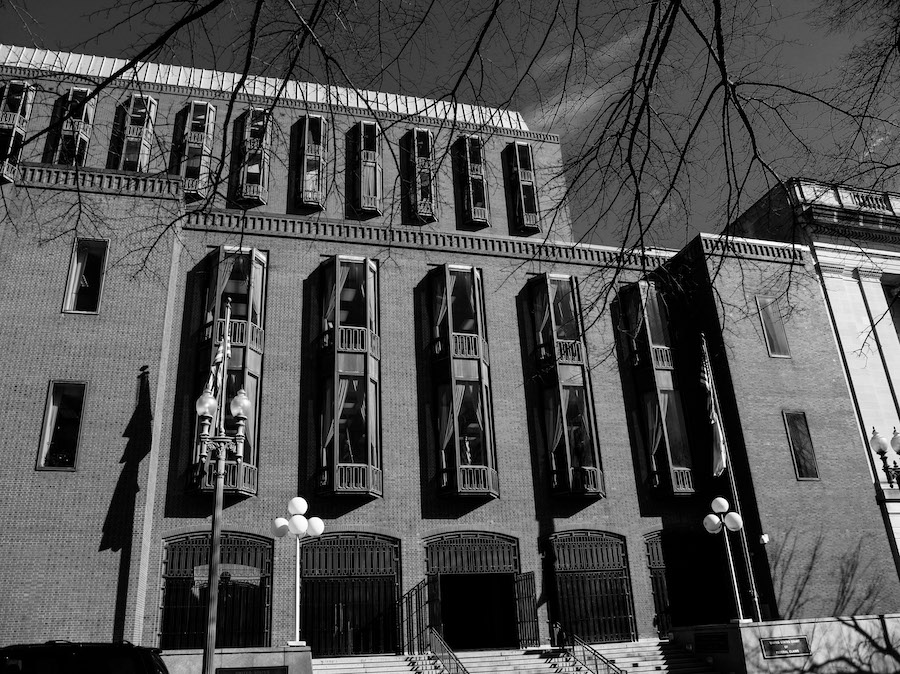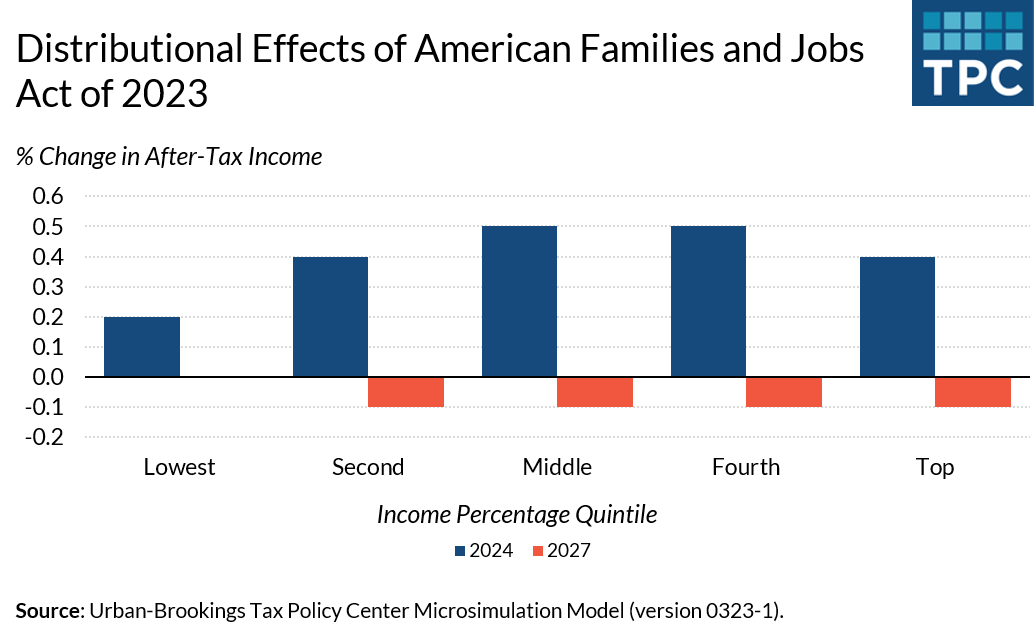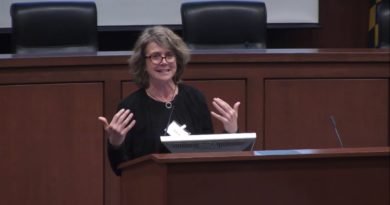Federal Circuit Special Committee Won’t Open Newman Hearing to the Public
“Dolin said in his June 15 letter that there appears to be no weighty reason to close the hearing to the members of the public or the press,”….but the Committee’s Order said that “[m]aking the argument public would risk [witness] disclosures and simultaneously impair the usefulness of the argument as the participants attempt to avoid making such disclosures.”
The Special Committee of the Judicial Council of the Federal Circuit that is investigating a complaint identified against Judge Pauline Newman filed an Order today clarifying the scope of its investigation. The Order was in response to a June 15 letter from Newman’s counsel asking for clarification of the narrowed scope of the investigation and also asking that the July 13 hearing be open to the public, which the Committee refused.
The Order clarified that “no part of the investigation has been terminated” and that the investigation into whether Newman “suffers from a disability that impairs her ability to perform the duties of her office remains ongoing.”
In separate orders issued June 1 and June 5, the Special Committee narrowed the focus of its investigation to whether Newman’s refusal to undergo medical examination and to provide medical records constitutes misconduct, and agreed to publicly release a number of documents at the request of Newman’s counsel, respectively.
Today’s Order explained that, while all previously articulated aspects of the investigation remain open and pending—including alleged misconduct related to Newman’s disclosure of a confidential employment dispute matter and alleged misconduct over “retaliatory, unprofessional, and abusive behavior towards her own and other court staff”—the investigation into whether Newman suffers from a disability “has been seriously impeded by Judge Newman’s refusal to undergo neurological and neuropsychological examinations, to provide medical records, and to sit for an interview with the Committee.”
Thus, the Committee opted to focus on the narrower issue of whether Newman’s refusal to comply with these requests amounts to misconduct in hopes of soon making a recommendation to the Judicial Council.
Newman’s counsel, Gregory Dolin of the New Civil Liberties Alliance, had asked for clarification of the scope of the investigation following the Committee’s June 1 Order since Moore had previously expanded the scope several times before announcing it would be narrowed, and the Order did not make it clear which categories of complaints were still being pursued.
Today’s Order noted “the only subject counsel should address in the brief due on July 5 (and at the hearing on July 13) is whether Judge Newman’s refusal to comply with the Committee’s orders seeking (i) neurological and neuropsychoogical testing, (ii) medical records, and (iii) an interview constitutes misconduct,” but added that “Counsel need not address, and the Committee will not at this time be considering: (i) the potential misconduct identified in the order of April 6, 2023; (ii) potential misconduct based on Judge Newman’s refusal to accept service of orders described in the order of April 13, 2023; and (iii) the potential misconduct described in the order of April 20, 2023.”
Doors Will Remain Closed
As to Newman’s request to make the hearing scheduled for July 13 open to the public, the Special Committee refused, but said it will consider publishing a redacted transcript that protects witness’ identities.
Dolin said in his June 15 letter that “there appears to be no weighty reason to close the hearing to the members of the public or the press,” since the Committee conceded there will be no witnesses at the hearing, and the June 1 Order indicated that the investigation into whether Newman’s refusals to cooperate with medical testing constitute misconduct can be determined based on the paper record.
But the Committee’s Order said that Newman’s counsel is in possession of all of the affidavits and deposition transcripts the committee has relied upon and the danger that these will be made public during the hearing are too great. The Order said:
“Making the argument public would risk [witness] disclosures and simultaneously impair the usefulness of the argument as the participants attempt to avoid making such disclosures. In the Committee’s view, counsel will be unable to argue points effectively—and the Committee will not be able to question counsel effectively—if all the participants in the argument must attempt to censor themselves in real time to avoid disclosing details that might publicly identify witnesses or disclose confidential aspects of their statements.”
Dolin’s contention that the Supreme Court’s ruling in Waller v. Georgia supports making the hearing public was dismissed by the Committee as “inapposite” since that case concerned a criminal trial.
Dolin’s June 15 letter argued:
“Though good reasons may exist for keeping disciplinary proceedings secret, when exposing such proceedings to the public may intimidate witnesses or unnecessarily cast doubts on the honorable service of an accused judge, the upcoming hearing raises no such concerns…. Permitting public participation in the upcoming hearing will therefore serve only to increase the public’s confidence in Judge Newman’s abilities and the disciplinary process.”
But ultimately, the Committee determined that the ordinary rule of confidentiality established by the Judicial Conduct and Disability Act of 1980 and by the Rules for Judicial-Conduct and Judicial-Disability Proceedings will apply, and a redacted transcript will be released following the argument.
Federal Circuit Chief Judge Kimberly Moore first identified a complaint against Newman in April. IPWatchdog was the first to break the news, and the court soon published a statement responding to media reports and making previously sealed documents public. Moore has refused to recuse herself from the Special Committee, which, in addition to Moore, includes Judges Prost and Taranto.
Eileen McDermott
Eileen McDermott is the Editor-in-Chief of IPWatchdog.com. Eileen is a veteran IP and legal journalist, and no stranger to the intellectual property world, having held editorial and managerial positions at […see more]







